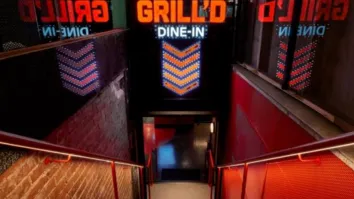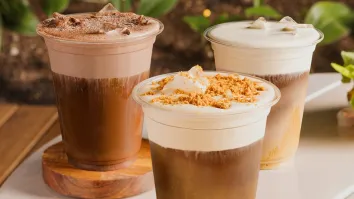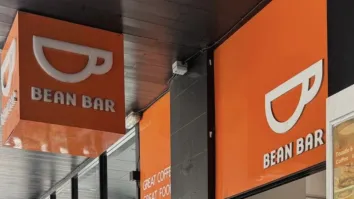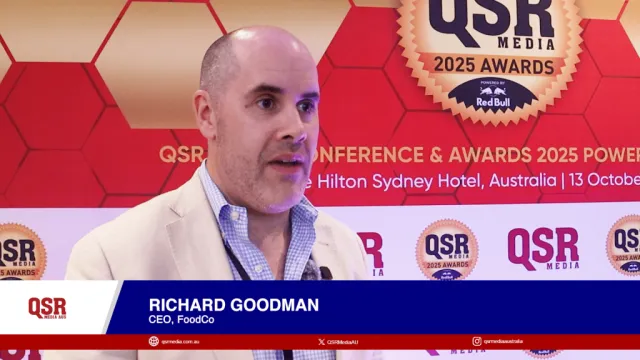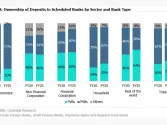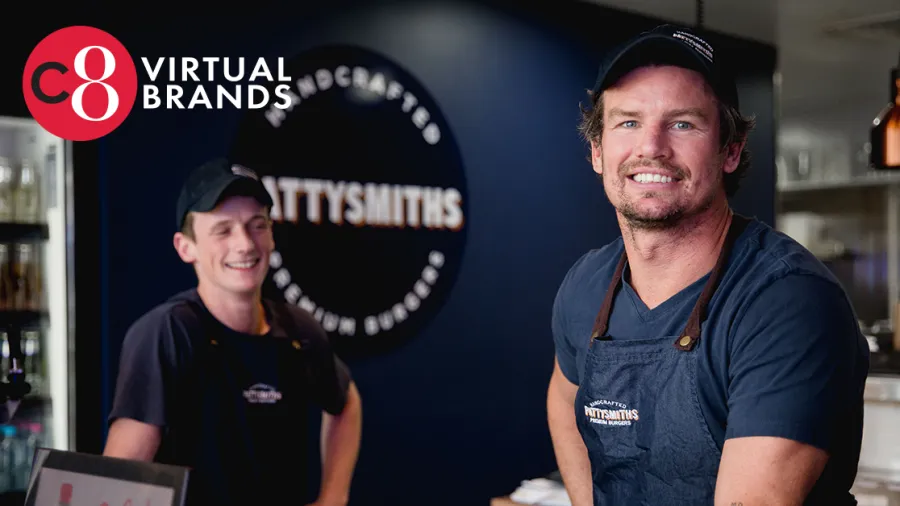
7 Ways Virtual Brands Are Shaping the Future of the QSR Industry
The Quick Service Restaurant (QSR) industry is witnessing a paradigm shift as virtual brands take centre stage, driven by consumers' increasing appetite for innovative concepts and delivery options. A series of recent studies reflect the growing significance of virtual brands in the QSR landscape, with Euromonitor International predicting that they will account for a staggering 25% of restaurant sales by 2025.
As virtual brands flourish, consumer attitudes are evolving. According to a Technomic report, 75% of consumers are willing to try a virtual restaurant, and 51% are even prepared to pay a premium for their offerings. The same study also highlights a marked increase in delivery demand, with 70% of consumers more likely to order food for delivery than they were just two years ago.
In the coming years, restaurateurs will need to adopt a far more flexible approach in order to meet their customers’ changing needs. Virtual restaurants are one way for QSRs to retain and grow their customer base as demand for delivery increases—and at a time when labour shortages are also beginning to bite.
Here are seven more ways on how virtual brands are shaping the future of the QSR industry, revolutionising fast food and redefining the dining experience:
1. Increased Competition
Virtual brands have created new competitors in the QSR industry, as they can launch quickly and with relatively low costs compared to traditional restaurants. This increased competition has forced traditional QSRs, particularly those that rely on in-store traffic, to adapt their strategies and offerings to stay relevant in the market. As more virtual brands enter the space, QSRs must continue to innovate and differentiate themselves to maintain market share.
2. Expansion Opportunities
Virtual brands provide QSRs with the opportunity to expand their offerings without the expense and risk of opening new physical locations. By using existing kitchen space, QSRs can launch virtual brands that appeal to different customer segments or test new menu items. This enables QSRs to remain agile and responsive to changing consumer preferences, allowing them to expand their market reach and increase revenue without significant upfront investment.
3. Improved Efficiency
Since virtual brands rely on online ordering and delivery, they can often operate more efficiently than traditional QSRs. This allows them to offer lower prices and faster service, which can be attractive to customers. Additionally, virtual brands can optimise their operations by focusing on delivery logistics and streamlining their menu offerings, reducing overhead costs and increasing profitability. Operators are investing in technology and automation that use artificial intelligence and machine learning to optimise menus, predict demand, and manage inventory.
4. Harnessing Data-Driven Insights
Virtual brands rely on online ordering platforms, which provide valuable data and insights into customer behaviour and preferences. This data can help QSRs optimise their menus, marketing, and operations to better serve their customers and drive growth. By leveraging data-driven insights, QSRs can make more informed decisions about menu offerings, promotional strategies, and customer engagement, ultimately leading to increased customer satisfaction and loyalty.
5. Increased Demand for Delivery
The rise of virtual brands has contributed to the growth of the food delivery market. As customers become more accustomed to ordering food online, they are increasingly choosing delivery over in-store dining. This shift in consumer behaviour has led to increased demand for delivery services and forced QSRs to rethink their operational strategies. To capitalise on this trend, QSRs must invest in delivery infrastructure and partnerships to ensure they can meet customer expectations for fast, convenient, and reliable service.
6. Innovative Food Offering
Virtual brands are making creative contributions to the QSR industry by offering consumers a variety of new menu items through the following trends:
- Multi-brand virtual kitchens: A growing trend in which a single kitchen space is used to operate multiple virtual brands, maximising kitchen space and resources and offering a variety of cuisine options to customers.
- Branded virtual kitchens: Some restaurant chains create their own branded virtual kitchens, separate from their physical locations, allowing them to launch new concepts or test menu items without the overhead of a physical storefront.
- Collaborations and partnerships: Virtual brands are increasingly collaborating with other brands, influencers, and celebrities to create unique menu items and experiences, driving customer engagement and brand awareness.
- Health and wellness: Virtual brands are responding to the growing demand for healthier food options by offering more plant-based and low-calorie menu items, and partnering with nutritionists and dietitians to create meal plans that cater to specific dietary needs.
7. Promoting Sustainability and Social Responsibility
Virtual brands are also tapping into the growing demand for environmentally-friendly and sustainable food options by offering menu items made from local ingredients, using eco-friendly packaging materials, and integrating recycling initiatives in their stores. Offering plant-based menu items can also help virtual brands cater to the growing demand for sustainable and health-conscious food choices. Plant-based diets are associated with lower greenhouse gas emissions, reduced water usage, and decreased land requirements, making them an environmentally responsible choice.
The Future of Virtual Brands
As the QSR industry continues to evolve, virtual brands are poised to play an increasingly significant role in shaping its future. By staying ahead of emerging trends and leveraging the unique advantages offered by virtual operations, QSRs can capitalise on the growth of this disruptive market segment and continue to thrive in an increasingly competitive landscape.
Over the next five years, we expect the virtual brand market to continue growing, driven by factors such as increasing popularity of online ordering and delivery, the rise of ghost kitchens, and the demand for innovative and convenient food options.
Virtual brands may become even more specialised, focusing on niche cuisines and dietary needs, as well as catering to specific occasions. We may also see increased integration with technology, using data-driven insights and automation to optimise menus, manage inventory, and improve operations.
While it is impossible to predict the future of any specific virtual brand, those that can stay ahead of emerging trends and provide innovative and convenient food options are likely to succeed in the coming years.
Stay Ahead of the Competition with a Virtual Brand for Your QSR
In today's highly competitive quick-service restaurant (QSR) industry, it's crucial to stay ahead of the game. Implementing a virtual brand can give your QSR a competitive edge and help you achieve your goals.
Partnering with Concept Eight (C8) Virtual Brands can be the key to staying ahead of the competition in the QSR industry. Their expertise, support, and dedication to your success will help you achieve your goals and take your business to new heights.
Adding C8 Virtual Brands to your restaurant can lead to additional sales with minimal additional operating costs, attract new customers, improve market share, and enhance operational efficiencies. By partnering with C8, you'll be joining an Australian company with 25 years of experience in the food industry.
Their commitment to your success goes beyond just launching your virtual brand; they provide ongoing support in various areas, such as business operations and financial guidance. The C8 team can also provide financial guidance to help you achieve these goals and diversify your revenue streams.
Take Action Now
For businesses seeking help with branding, marketing and strategy from one of Australia's leading virtual brands, Concept Eight is ready to discuss the opportunities for collaboration.
Contact C8 Virtual Brands today and give your QSR the competitive edge it needs.


